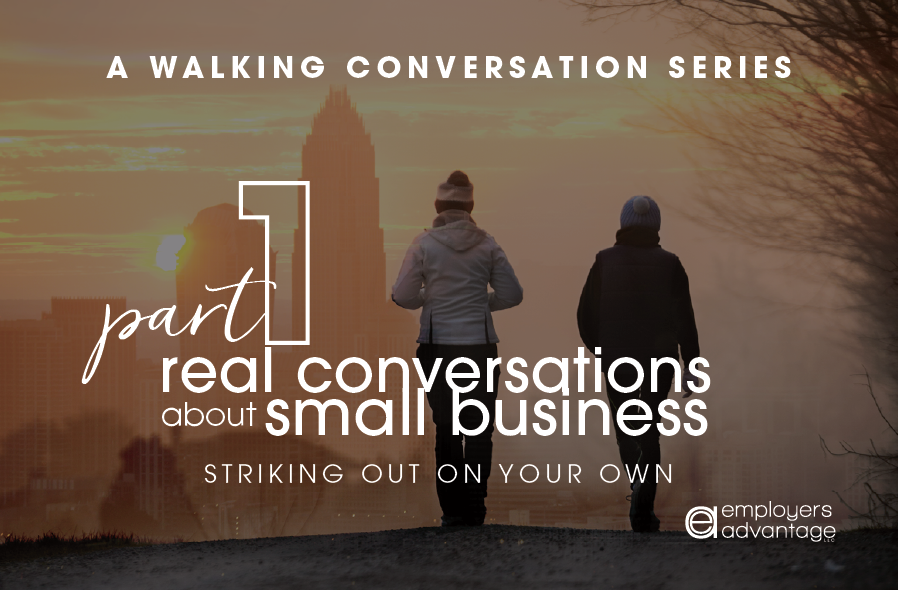My Non-HR Life
- employersadvantage

- Sep 1, 2020
- 3 min read
Updated: Mar 18, 2021
I have had the distinct pleasure of working at Employers Advantage, a privately owned, outsourced Human Resources firm serving small businesses and non-profits, for the past 6 months and have enjoyed every minute of it. There is one thing that makes this journey so unique -- I’m not from the HR world.
We thought this would be a great opportunity to chronicle some of my experiences and make Human Resources more relatable, as admittedly, most of our clients do not have Human Resources backgrounds either, so sometimes it can make effective communications around the need for policies, procedures, or best practices challenging. With that, I’d like to share some insight on the 2 greatest challenges I’ve faced in my transition from a non-HR world into a HR world, the 2 most valuable pieces of knowledge or understanding gained, and how I use this information to translate Human Resources language/lingo to help our non-HR speaking clients become more comfortable in our business relationship.
Let’s take a look at the 2 greatest challenges. The first, and most obvious challenge was the Human Resources jargon. As we know, every industry has its own language that the natives of that industry speak, almost as if it is your access badge to the meeting. Well, Human Resources is no different. I found myself on team calls with my head swimming from terms, acronyms, and well-known compliance phrases. My solution was simple: Write down everything I had questions about, Google, and ask for clarity during my one on one’s. I would then try to understand how they played a role in solving potential client issues, as presenting solutions is a large function of my role.
If acronyms and industry language were my greatest challenge in transitioning to the Human Resources world, I would have to say understanding how Human Resources could positively or negatively affect revenue was second on the list. I mean, how could a department known largely for rules, regulations, and hiring/disciplinary actions possibly have a real, tangible effect on revenue? Believe me, Human Resources people are not selling services. My understanding of Human Resources had to expand. I grew to understand that an effective Human Resources team wasn’t there to simply capture the policy ideas of the business owner and then put those ideas to paper in a grammatically correct format, or simply to be the face of the new benefits role out, or indicate the arrival or removal of an employee, but Human Resources professionals were there to help mold the culture of the company, taking into consideration the main objectives of the business and business owner, while also creating a work environment and culture that would make people excited to be a part of the organization, and to some extent, to help cast vision of the company through policy formation and fair and equitable procedures. This type of innovative thinking drives greater employee production, reduces re-training and re-hiring costs, and retains talented, career minded, individuals, thus reducing company expenditures that can be attributed directly to the bottom line.
So, what does this really mean to a small business or non-profit? Do not allow what you don’t know about Human Resources to have a negative impact on your business. You do not have to know it all and you do not have to tackle it alone. You are also able to have access to the Human Resources solutions you need, even if you cannot afford to, or your business doesn’t require you to, hire a full- time Human Resources representative.
As our norm is being redefined daily, make sure your business remains competitive through innovative, people-centric, Human Resources solutions. Employers Advantage is here to help.
Robert Client Relationship Manager







